When the NHL called Manon Rheaume a couple of weeks ago to ask if she'd be interested in participating in the All-Star Skills Competition - set for this coming weekend in Las Vegas - her answer was a no-brainer.
"Yes, of course," Rheaume thought. "I mean, why not!?"
One problem: Rheaume, the long-retired goaltender who made history by appearing in an NHL exhibition game in September 1992, didn't own suitable gear. Bauer quickly sent Rheaume brand-new equipment so the former Canadian Olympian could squeeze in a few warm-up sessions before Vegas.
"I had not been on the ice in forever," Rheaume said Tuesday in an interview.
"I didn't realize how easy it is to get dressed now as a goalie and how light this stuff is. You can play with it right away. It's all broken in."
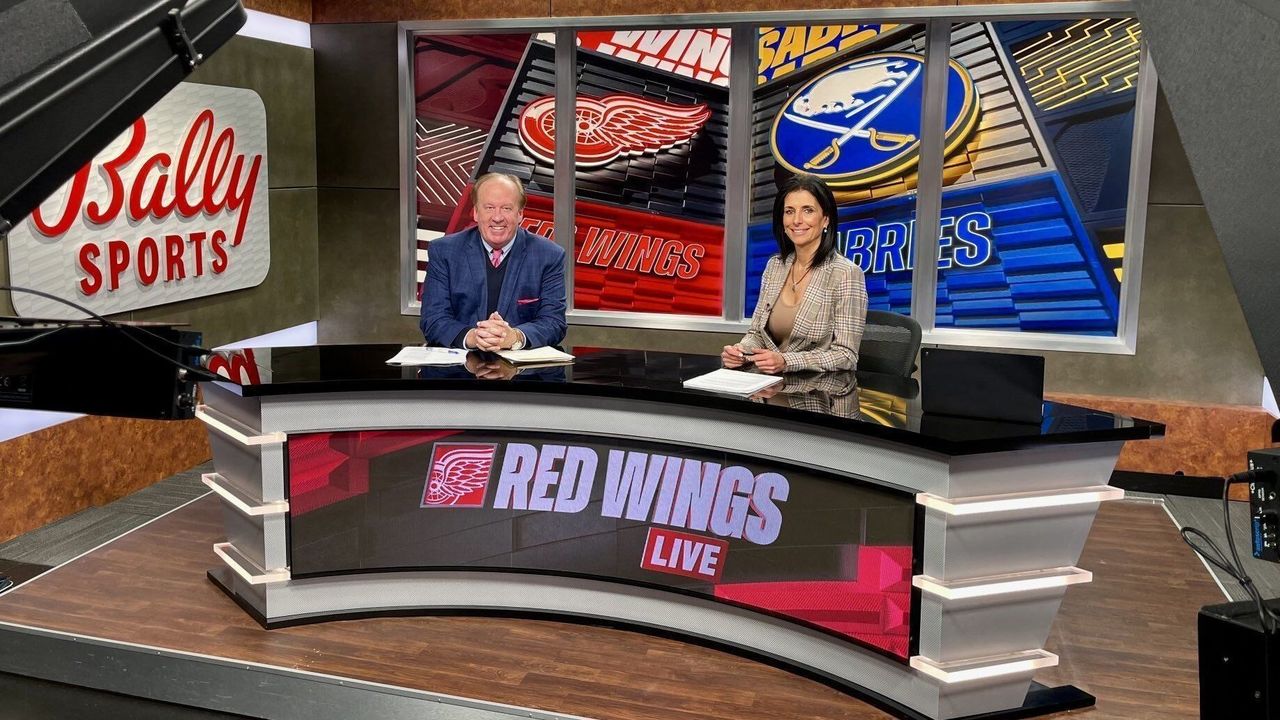
Rheaume, who covers the Red Wings as a TV analyst and reporter for Bally Sports Detroit, is one of four "special guests" taking part in Friday's skills event at T-Mobile Arena. The pro hockey trailblazer and current under-12 girls coach will face off against world-class danglers in the Breakaway Challenge, which also features Anaheim Ducks sensation Trevor Zegras.
"I hope the puck is going to touch me at some point," Rheaume joked.
While waiting at the airport for her flight from Detroit to Vegas, Rheaume chatted with theScore about a variety of topics - breaking new ground 30 years ago, the state of women's hockey, the rebuilding Wings, and more.
(Note: The following conversation has been lightly edited for length and clarity.)
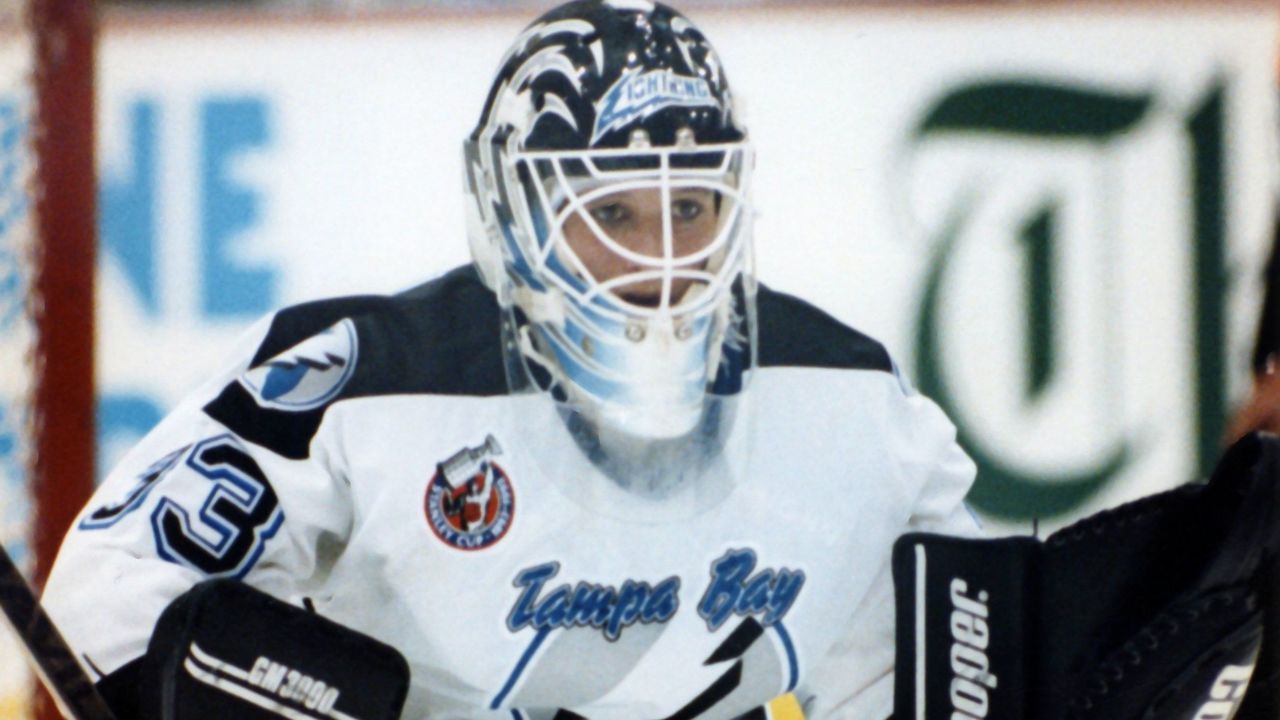
Let's go back to 1992. You arrive in Tampa, Florida, for Lightning training camp. What are your expectations for the on-ice portion of the camp and also for how you'd be received off the ice by teammates, coaches, etc.?
It's funny, because back then I was 20 years old, and I had zero expectations. I had no idea how this whole experience would change my life. When I was younger, a lot of people would say no to me because I was a girl. They didn't want me to play at the highest level. And then suddenly, after getting cut three or four times, one coach picked the best goalie, and he picked me. So I played two years, bantam AA. And then (the next level) was midget AAA, and they invited everyone who had played AA except for me. Because I was a girl.
I faced so much of that along the way that when I got invited to Tampa, I told myself I didn't want to have any regrets, and I need to take this chance because, obviously, it's never going to come back. (laughs) And I just went there with zero expectations. I didn't know how I would be received. My English was not very good, so I just went there and tried to do my best.
I remember thinking that first time I stepped on the ice was probably going to be the most important moment. We started right away with a mini-tournament, and I did not allow any goals on 14 shots. I was the only goalie in that game who did not allow a goal. That totally changed how people saw me, too. It's almost like I gained respect from the players and the media and the people that were there.
It's after that performance that (then-Lightning general manager Phil Esposito) announced that, by the way she played today, maybe you'll see her in an exhibition game.
You made seven saves on nine shots in that exhibition game against the St. Louis Blues. What are the flashbulb memories 30 years later? What really resonates still to this day about the period you were in goal?
The walk from my locker room to the ice. It was probably the most nervous I've ever been. I remember my heart beating so fast. It felt like it was coming out of my chest.
But the cool thing is, when I stepped on the ice, I kind of forgot that I was playing an NHL game and what I was about to do. I just stepped on the ice, and the butterflies went away, and I was just ready to play a hockey game. That feeling was probably the coolest feeling I've ever had. It's almost like, "This is what you've been doing all of your life. This is what you love to do. And this is what you're about to do right now."
It was really, really a cool feeling. And then, right away, we got a penalty. They were on the power play, like, within the first minute of the game, and I'm thinking to myself, "Really!?" (laughs) But it was probably the best thing because I had two or three shots right away, and it got me into the game. And the Tampa players, too, they started to feel good about it. After the first period, it was 2-2, so for me, it was a big victory.
Women's hockey action at the Beijing Olympics starts this week. Do you recall what you were doing and how you were feeling a day or two before the 1998 Olympic tournament began in Nagano, Japan?
One memory is the bus pulling into the (athletes' Olympic) village, and you step out of the bus, and you're seeing the village in front of you, and it was just a very overwhelming feeling. Like, wow. It made it real.
The other moment is the opening ceremony. I remember, as a kid, always watching the opening ceremony, and every time Canada would come through (the stadium), I'd try to see how they were dressed. You had that pride of seeing your country walking around, and this time it was me. So I couldn't take the smile off my face the entire time I walked around.
If I'm picturing the Canadian athletes from Nagano correctly, you guys were wearing those famous - or infamous, depending on who you ask - red Roots caps. Do you still have the cap? Is it a souvenir?
I still have all of my Roots stuff. I have my jackets. I have my boots. I kept everything. It was an iconic hat, right? Like, everyone talked about that hat. We'd put it backward. It was just so cool.
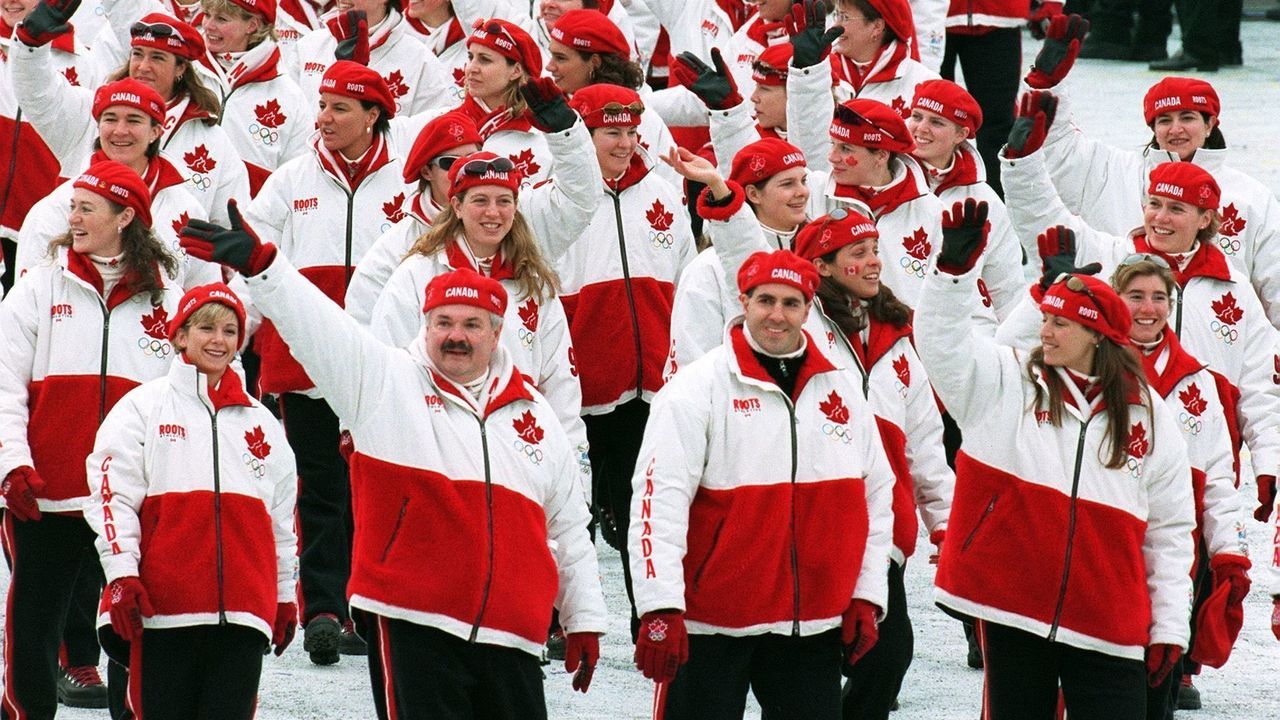
While Finland has made up some ground in the women's game recently, the sport is still dominated by Canada and the United States. Heading into Beijing, who's your gold medal favorite? And why?
I played hockey in Canada, (I've) had a lot of friends on Team Canada over the years and some who continue to be involved. But I live in the States, so I've coached a lot of the young girls that play now. I coached Kendall Coyne, Alex Rigsby (Cavallini), Megan Bozek, Abbey Murphy. I have ties on both sides, knowing people. And I've just been enjoying watching the games.
What is really cool about the women's game is that when Canada and U.S. are on the ice, they're competing. They want to win. But they have such a respect for each other because they've all tried to grow the women's game. When we started, Canada and USA, we used to dislike each other (off the ice, too). The rivalry was different. Now, they still compete and fight, and there's intensity. But they're all also growing the women's game.
As far as looking at (who's going to win gold), Canada won the last world championship, but the U.S. had the last five. The U.S. won the last Olympics, but Canada won the last four. So, it could be either/or.
The (tune-up) games prior to the Olympics, yes, Canada won four of the six, but three of them went into OT. It could have gone either way, so to me, the way that I look at the Games is that it's going to come down to goaltending. Who's going to be the hottest goalie in the (gold-medal game)? And also discipline. In a lot of those big games, not a lot of goals are scored five-on-five. A lot of the goals are scored on the power play. So the team who is going to be the most disciplined and who has the goalie that's the hottest, to me, that's the team that's going to win.
You mentioned coaching Kendall Coyne. We all know about her incredible speed after her performance at the 2019 NHL All-Star Skills Competition. What else should people know about Kendall?
I coached her for quite a few tournaments, and I knew she was going to go far in life. Not just in hockey but in life. Because it was her drive, her work ethic, and she was always the best player on any team that I coached. But she also never acted like she was the best player. She always worked harder than anybody else on the ice, off the ice. Just a great person with a great work ethic, and really, a great team player.
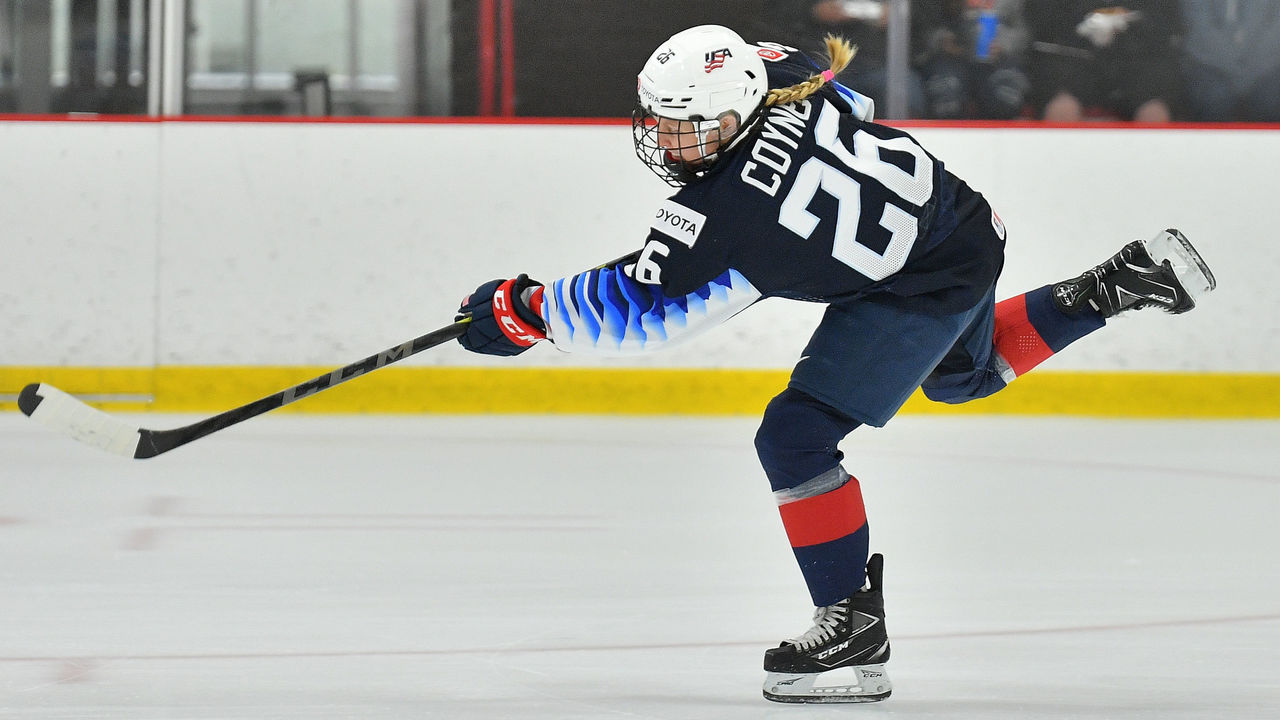
The women's professional game remains in a holding pattern of sorts, where it seems like the consensus long-term solution is to establish a sustainable top league. What's your hope for the future?
You cannot have two or three leagues going at the same time. You're just fighting for players and splitting up players. Women's hockey is not big enough to have something like that. You need to have one league with the top players available to play in that league.
I think it would be important to have maybe a second league to give a chance to some young girls who maybe aren't making the team right away but could eventually. Or even some woman who doesn't make the top league but can still play somewhat professionally and make some money out of it. But trying to compete and have two pro leagues, or three, is just never going to work. It would be like having two NHLs. It's not going to work.
Speaking of the NHL, we're seeing women assume key roles in hockey operations, whether it's through management, player development, scouting, analytics. Have you given any thought to working in the NHL?
Of course. If the right opportunity would come, with all of the experience I have gained over the years, between coaching and building a (youth hockey) program and having two boys that play at a high level, I would consider it.
It's funny, sometimes I see some kids my sons played with that get drafted, or not drafted, and you just know the type of player they are when they're younger, and then you're like, "Ah, not surprised this person didn't make it." Or, "I knew this kid was going to make it." Because you saw what they were doing at a younger age, with their character and everything else. Knowing what you need to get to the next level, you have a good idea of who can make it. Hockey's been my life. Between playing and having kids that play, coaching. So, definitely, it would be something that I would consider if the right opportunity would come.
Do you know new Canucks assistant GM Emilie Castonguay?
I don't know her personally. But I do know her story. Obviously, she did an amazing job as an agent. Well-respected. It's the same thing you have in Montreal with (new GM) Kent Hughes, and we saw it with Pierre Lacroix years ago with Colorado. These are agents becoming managers. They understand the player side, and they also have dealt with management over the years, so they have a certain experience that other people may not have. I think that can be very beneficial, having been working on the other side for (so long).
Valid point. It can go as far as somebody who hasn't played high-level hockey bringing a fresh mind to the analytics department, right? It's smart to have different perspectives in your organization, period.
And it's not to have diversity just to say you have diversity. That's what, I think, people need to understand. Bringing diversity is bringing different ideas.
They made that book, "Men Are from Mars, Women Are from Venus," because we think differently, which means maybe we approach things differently. It doesn't mean one is better than the other one. But, as a team, as an organization, or even a company, the reason why you should want to find diversity is because you have different ideas, different views. Getting that perspective, that view, is just so valuable.
The reason I truly believe in this is because when I was coaching my boys at a younger age, I had so many parents that would say to me that the way that I was approaching coaching, because I'm a mom, was different. I communicated with the kids better, and I was more about positive reinforcement and trying to get to know the kids. You know which kids you need to be a little harder on, which kids you need to be more positive. You get to know how each kid reacts. Some of the male coaches, then, didn't have the patience to deal with it. And it's not bad, or it's not good, it's just their way.
That's where I feel bringing diversity to a team or a company can be very beneficial. It's a different look or a different view.
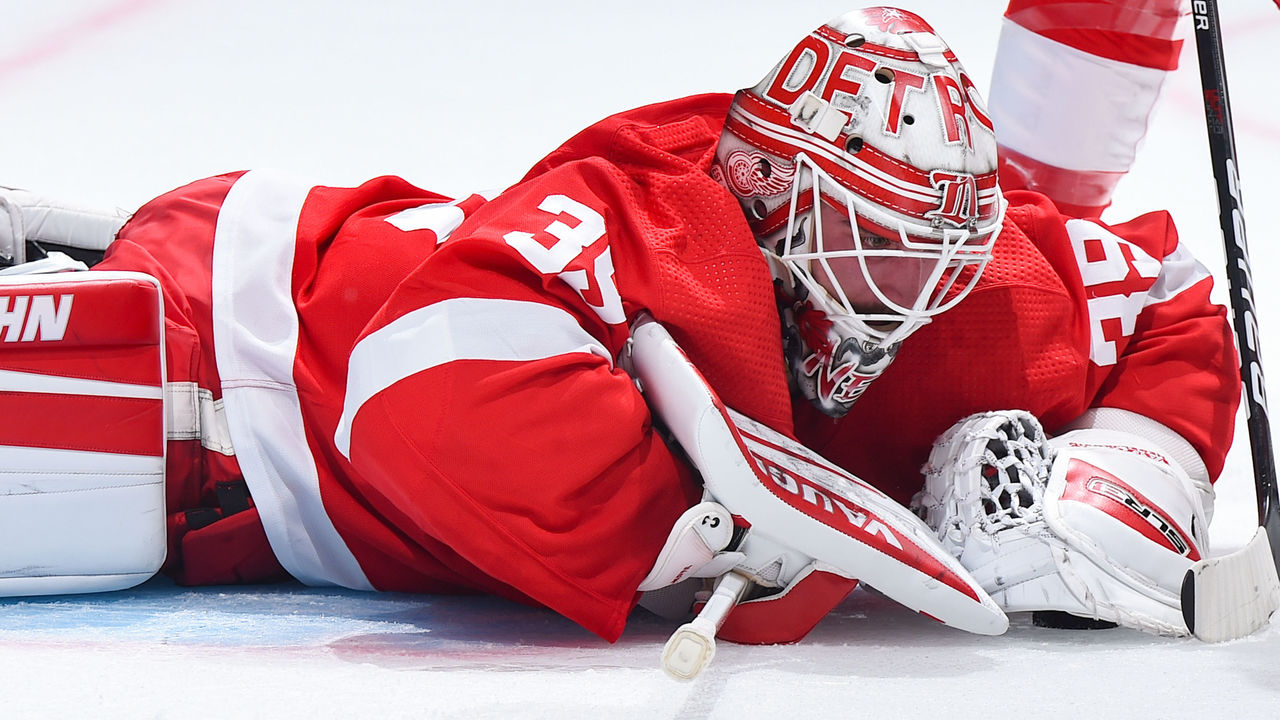
OK, let's finish with some Red Wings talk. Plenty of breakout years from rookies, including goalie Alex Nedeljkovic. From your perspective as a former goalie, what's been most impressive about Alex's season?
I like a lot of things about Nedeljkovic. But what I think I like the most is how competitive he is and how he is able to, at a young age, move on from a bad goal. That's a big strength as a goalie. Being a goalie - it's so much in your head.
He can read the play very, very well. And he's athletic. So he reacts to the play and to the shot. He's not a blocker, and that's why sometimes he makes those amazing saves, where it looks like he's doing whatever he needs to do to stop the puck. He's reacting to what's in front of him. He doesn't have the size (at only 6-foot-1) to be a blocker.
I also like the way he plays the puck. To me, a goalie who can play the puck is huge. It's like your third defenseman. Coaches know how important it is, defensemen and forwards know how important it is, but a lot of hockey fans don't understand the difference it can make.
Detroit could make the playoffs this season, but it's highly improbable at this point. How would you evaluate the state of the Red Wings and their rebuild? How far is this team from returning to prominence?
Bringing Steve Yzerman back to Detroit (as GM) was really the start of getting back to where the Red Wings want to be. It's never going to be like it was back in the day. That was before the salary cap. (laughs) They were able to get whoever wanted to win the Cup. They were all coming to the Red Wings. They were able to build those amazing teams. Now, with the salary cap, it's a little different.
But you saw what he did with Tampa Bay, building a Cup-winning team. Even just the decisions he's made so far in Detroit, drafting (Moritz) Seider. People were wondering why he picked him so early (at sixth overall). Same thing with (Lucas) Raymond. Yzerman just has this amazing hockey mind. He knows what it takes as a player because he was successful. He knows the style of player that he needs, and he knows now how to build a team after being in Tampa Bay. He knows he needs to be patient.
I truly feel that this season, with having Seider, Raymond, and Nedeljkovic, it has not been just a few good games. They've been consistent all year long, as players and as a team. They've sped up their rebuilding. They're a few years away from really making (a deep playoff run). We'd like to see them in the playoffs this year, but it's going to be a hard battle to get there.
John Matisz is theScore's senior NHL writer. Follow John on Twitter (@MatiszJohn) or contact him via email (john.matisz@thescore.com).
Copyright © 2022 Score Media Ventures Inc. All rights reserved. Certain content reproduced under license.